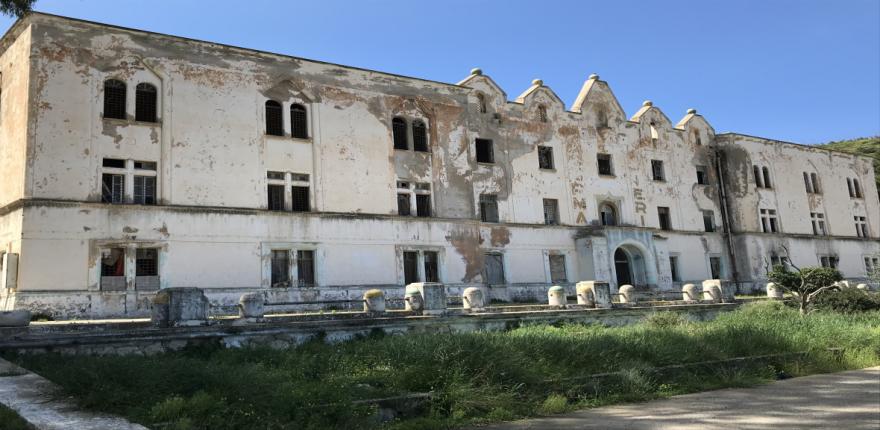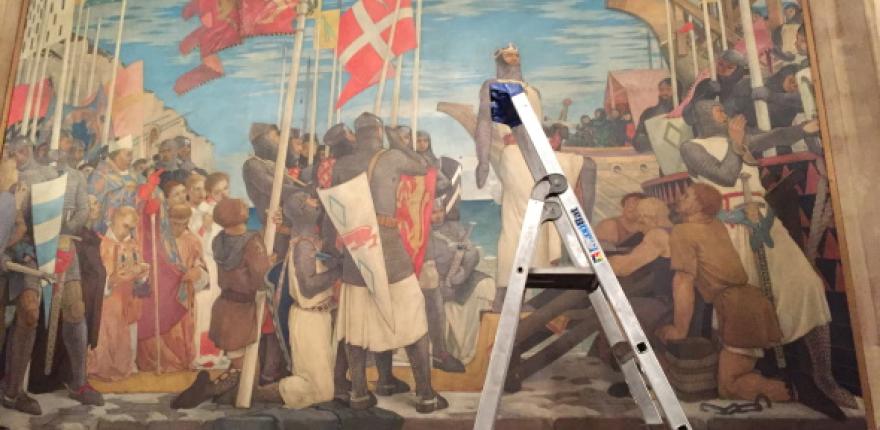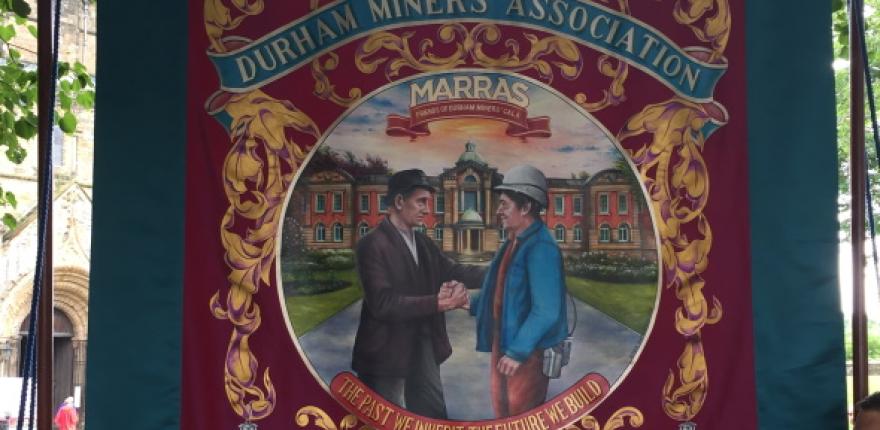Course length
10 months, full-time
Assessment
3 x modules
Graduate Research Skills
Dissertation of up to 15,000 words
Department of Archaeology

The MPhil in Heritage Studies focuses on the use of the past in the present and the different ways heritage is used in today’s social and political contexts. Our approach of heritage addresses all aspects of tangible and intangible heritage such as language, music and foodways, and aims to provide a robust understanding of the theoretical underpinning of Heritage Studies which is central to everyday heritage practice.
During our classes we explore questions such as the following: How is the past used in identity politics and national identity narratives? What is the role of heritage in conflict, war and resistance? What is the role of heritage in post-conflict reconstruction? How do we understand the significance of heritage in decolonisation? Do ‘authorised heritage’ preservation programmes matter? What is the role of UNESCO for heritage formation and protection? What is the role of museums in the 21st century?
Also, we consider all of heritage’s epistemic and ethical dimensions and challenge students to consider which elements of the past should be kept for the future and why, and whether stewardship is still a useful concept for heritage theory and practice. This is an intense programme, interrogating the ways heritage is involved in many of the key contemporary challenges facing society.
On the MPhil in Heritage Studies, you will engage with various areas that intersect with heritage including:

The MPhil consists of five elements, with G22-24 being two-term modules:
G22 and G23 are compulsory modules. Most students take G24 as an elective, but there is also flexibility to take other MPhil modules within the Department of Archaeology instead.
G22 Socio-politics of the Past
This module aims to develop a critical awareness of the diverse cultural, social and political contexts in which the uses of the past are embedded and expressed and how these shape the role of the past in the present. In particular, it aims to increase your understanding of the different socio-cultural processes in which heritage is embedded and which motivate different interpretations and uses of the past.
It also aims to develop and sharpen your understanding of how heritage can be a potential arena for contestation as well as a source of reconciliation and to explore the multiple ways in which heritage is linked to identity formation and, more broadly, to political processes.
G23 Heritage Management
This module aims to develop a critical understanding of the development of the heritage management framework, the role of heritage institutions such as UNESCO and the policies that are associated with heritage management around the world. The module provides a critical exploration of the epistemic, ethical, and legal dilemmas that are central to our understanding of heritage management processes.
We engage with some of the complex questions and practicalities surrounding heritage management of historic sites like buildings, landscapes, and monuments. These questions include the following: how should artefacts be preserved? Should items be moved from their native country? Who has the right to stewardship and/or ownership?
G24 Special Topics in Heritage
This third module covers an annually rotating selection of current topics in heritage theory, reflecting the latest research and developments in this dynamic discipline. These have included themes such as 'heritage and climate change', ‘heritage ethics’, ‘museums theory and practice’ and 'heritage and migration'.
Students also take G01 Graduate Research Skills which gives all students on an Archaeology MPhil a grounding in research and prepares them for putting together in-depth pieces of work around a central question or discussion. It involves participating in seminars on topics such as planning fieldwork, research ethics, writing and illustrating research, and presenting your work.
The dissertation topic is decided with the advice of a supervisor and is up to a maximum of 15,000 words.
Students on the course are taught through a combination of informal lectures, seminars, field trips, and written work. In addition to our regular staff, we also invite expert colleagues to teach on the course. Field trips and site visits that are included as part of the syllabus will either be free or heavily subsidised by the Department. Modules are assessed through the coursework, such as book reviews, essays, grant proposals or reports, and written examinations throughout the year.
All who enrol on the MPhil can apply for postgraduate membership of the Cambridge Heritage Research Centre, which hosts a range of heritage-related events and developments opportunities. These research activities are part of your research training. This is also an opportunity for MPhil students to connect with a network of academic specialists and heritage professionals from across the University and beyond.
Applications for this course are accepted from a wide range of disciplinary backgrounds such as: Archaeology, Geography, Law, Politics, History, Classics, International Relations and others.
On completion of the MPhil in Heritage Studies, you will be well prepared for either further postgraduate study in Heritage, or to enter the workplace in the heritage industry, museums or related fields.

Dr Andreas Pantazatos is the co-ordinator for this MPhil option. Please get in touch for further information.